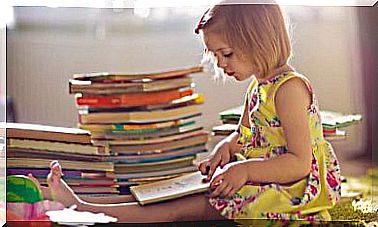Home Strategies For Children With Learning Disabilities – I’m A Mom

Imagine that you are sitting at the table in the living room helping your child with her homework. You do your best to keep him focused, but even something as simple as sharpening a pencil can make his concentration slip. Your child has a learning disability and this needs to be taken into account. Therefore, we are going to present some strategies that can be used at home, adapted to your real abilities.
You may think that doing homework with learning-disabled children is too complicated, but in fact, it doesn’t have to be that way, thanks to these strategies that can be used at home.
Strategies that can be used at home for children with learning difficulties

team effort
Contact your child’s teacher to discuss homework habits. Talk about how much time he spends doing his homework and how much he gets distracted while he should be doing homework. You will also need to find out what the teacher’s expectations are for your child’s learning and intellectual development.
Likewise, it will be critical that you make a work plan to help your child solve the problems he or she will face at home. Make her understand that while it’s a team effort and the teacher and you are there for her for whatever she needs, she also needs to do her part to advance her own learning.
Fun five minute break
If your child gets frustrated with a task, it’s best to take a break to do something fun together. You can take five minutes to go for a walk, listen to a funny song or have a snack. This can help break the frustration he’s been feeling, so he can return to his task with a fresh perspective.
He can return to duties with renewed energy and a willingness to make things even better. If he’s kept frustrated and sat for too long to do the same thing over and over again (but failing), you don’t have to give the answer, but neither can you allow him to get emotionally blocked. That’s why the fun rest is so important.
Task Completion Table
Create a task completion chart together and put it on the fridge or elsewhere so your child can easily see it. Create your own or search the internet for a table to download and print comfortably at home.
Mark an “X” each time your child completes a task. You can also reward the child with a small prize when he completes the table. What really matters is recognizing your child’s achievements, however small, in whatever way you feel is most appropriate.
Share reading, one of the strategies that can be used at home for children with learning difficulties
Reading an entire chapter of a book can be too much for some children with learning difficulties. So that the child doesn’t get so stressed and overloaded with reading, you need to help him with this task. It’s important to help her love reading and understand how important it is.

For this, you can make your child read the first paragraph or sentence and, if he is a new reader, you can read a large part of the text so that he can continue later with another small part.
Thus, the information in the story will become more interesting. It is necessary to take breaks to reinforce the concepts presented. This will help keep your child engaged and interested in the task at hand.
listen to calm music
Putting on quiet music while the kids do their homework doesn’t have to be a bad thing, even if your child has difficulties in learning and concentrating. If you choose the right song, it won’t be a distraction, far from it. What matters is that it is melodic and does not have lyrics that the child can understand.
In this way, the melody will help her to see the task as something more pleasant and, in addition, she will also be able to enjoy the music. If you can play an instrument, playing quiet music during your child’s homework can help block out annoying noises. He can also use headphones if the music bothers other family members.
Finally, we hope that these home-based strategies for children with learning difficulties will be helpful in providing your children with the best home-study options.









